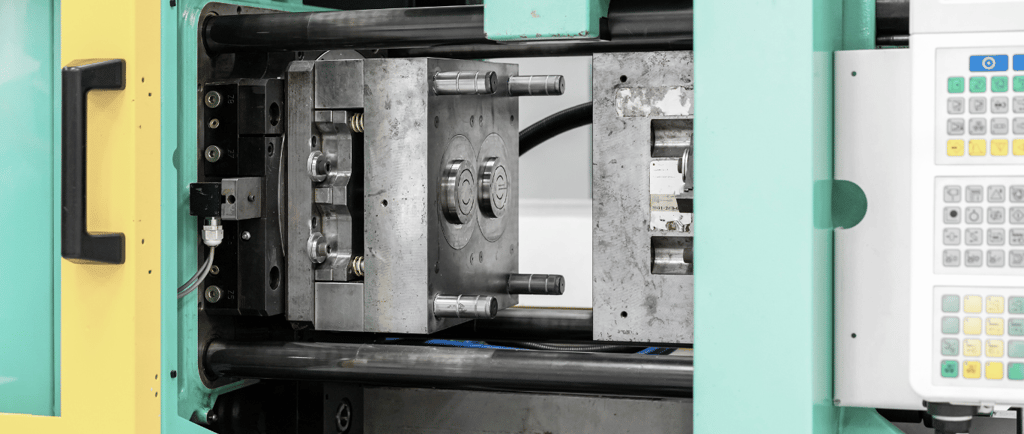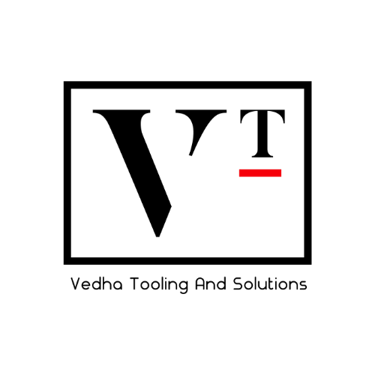The Growth of Injection Molding Services in India
Explore the dynamic world of injection molding services in India through our comprehensive blog series. From uncovering the advantages of choosing India as your manufacturing destination to diving deep into the injection molding process, we've got you covered. Discover the industries that benefit most, learn about the critical factors to consider when selecting a service provider, and stay updated on the latest trends and innovations in injection molding technology. We'll also analyze cost considerations, present captivating case studies, and provide insights into the promising future of injection molding services in India
Vedhatooling And solutions
9/2/20238 min read


What is injection molding?
Injection molding is a manufacturing process used to produce plastic parts by injecting molten material into a mold. This molten material is typically a thermoplastic polymer that is melted under high pressure and then injected into a mold cavity. Once the material cools and solidifies, the mold is opened, and the finished part is ejected.
Importance of injection molding in the manufacturing industry
Injection molding plays a crucial role in the manufacturing industry due to its ability to produce high volumes of complex parts with precision and efficiency. It offers advantages such as cost-effectiveness, repeatability, and fast production cycles. Injection-molded parts find applications in various industries, including automotive, consumer goods, packaging, electronics, and medical devices.
Evolution of Injection Molding Services in India
Historical overview of injection molding in India
The history of injection molding in India dates back to the 1960s when the first injection molding machine was introduced. Initially, the industry was characterized by small-scale manufacturing units catering to limited market demands. However, with advancements in technology and increasing demand for plastic components, the injection molding sector in India has witnessed significant growth over the years.
Factors influencing the growth of injection molding services in India
Several factors have contributed to the growth of injection molding services in India. One primary factor is the availability of skilled labor at competitive costs. The abundance of engineering and technical institutes in the country has facilitated the supply of skilled professionals in the field of injection molding. Additionally, favorable government policies, such as subsidies and tax benefits, have encouraged investments in the sector.
Rise of plastic manufacturing in India
India's rapid industrialization and urbanization have fueled the demand for plastic products. The rise of plastic manufacturing industries, coupled with the increasing adoption of injection molding technology, has led to the growth of injection molding services in India. The versatility and cost-effectiveness of plastic materials have further contributed to their popularity in various sectors, creating opportunities for injection molding service providers.
Advantages of Injection Molding Services in India
Cost-effectiveness and operational efficiency
Injection molding services in India offer cost-effective solutions compared to other manufacturing processes. The ability to produce complex parts in large quantities within short turnaround times results in lower production costs per unit. Additionally, the use of automated systems and efficient production techniques improves operational efficiency, reducing the overall manufacturing expenses.
Wide range of material options
Injection molding services in India provide access to a wide range of material options. From commodity plastics to engineering-grade polymers, manufacturers can choose materials that best suit their specific requirements. This versatility allows for the production of parts with varying characteristics, such as strength, flexibility, and heat resistance.
Customization and design flexibility
Injection molding enables high levels of customization and design flexibility. Complex geometries can be achieved, allowing for the production of intricate components. The ability to incorporate multiple features, such as undercuts, threads, and texture, gives designers and engineers the freedom to create innovative products that meet market demands.
Environmental sustainability
Injection molding services in India have also embraced environmental sustainability. The industry has adopted eco-friendly practices by using recyclable materials and reducing waste through efficient manufacturing processes. Additionally, advancements in material science have led to the development of biodegradable and bio-based polymers, further supporting the goal of sustainabili
Role of government policies and initiatives in supporting the industry
The Indian government has played a crucial role in supporting the growth of the injection molding industry. Policies such as "Make in India" and initiatives to promote investment in the manufacturing sector have fueled the expansion of injection molding services. The availability of specialized incentives, grants, and subsidies has encouraged both domestic and foreign companies to invest in the industry, stimulating its growth.
Market Analysis: Demand and Trends
Growth of end-user industries demanding injection molding services
The demand for injection molding services in India is primarily driven by various end-user industries. The automotive sector, for instance, relies heavily on injection-molded components for both interior and exterior applications. Similarly, the consumer goods, packaging, electronics, and medical industries have a significant demand for customized injection-molded parts. As these industries continue to grow, the market for injection molding services is expected to expand further.
Emerging trends and technological advancements in injection molding
The injection molding industry in India is witnessing emerging trends and technological advancements that are reshaping the sector. One such trend is the increasing demand for lightweight and sustainable materials, which has led to the development of innovative composites and bio-based polymers. Additionally, the integration of digital technologies, such as computer-aided design (CAD) and simulation software, has improved product development and manufacturing efficiency.
Challenges and Opportunities in the Indian Injection Molding Sector
Competition from other manufacturing hubs
While the Indian injection molding sector has experienced substantial growth, it faces competition from other manufacturing hubs, such as China and Southeast Asian countries. To remain competitive, Indian injection molding companies need to emphasize factors like quality, cost-effectiveness, and efficient delivery to attract both domestic and international clients.
Skilled labor availability and training
Despite the availability of skilled labor in India, the injection molding industry faces challenges related to skill gaps and specialized training. It is crucial for companies to invest in continuous training programs for their employees to keep up with evolving technologies and enhance their expertise. Collaboration with educational institutions can also help bridge the skill gap and provide a steady supply of skilled professionals.
Government support and infrastructure development
To further accelerate the growth of the injection molding sector, continuous government support and infrastructure development are vital. Investments in infrastructure, such as industrial parks and specialized manufacturing zones, can facilitate the establishment of advanced injection molding facilities. Additionally, streamlined regulatory processes and further incentives can attract foreign investments and promote the expansion of the industry.
Innovations and achievements in the field
Indian injection molding companies have also made significant innovations and garnered recognition in the global arena. Examples include the development of multi-shot molding technology, which enables the production of complex parts with multiple materials in a single molding cycle. Such innovations showcase the industry's commitment to continuous improvement and meeting the evolving needs of clients.
Future Prospects and Growth Potential
Projected growth of injection molding services in India
The future of injection molding services in India looks promising, with projections indicating significant growth. Factors such as increasing demand, favorable government policies, and the country's expanding manufacturing sector contribute to this positive outlook. The injection molding industry is expected to witness advancements in technology, process optimization, and market expansion, further driving its growth.
Emerging markets and untapped opportunities
As India's economy continues to develop, there are untapped opportunities and emerging markets that hold potential for the injection molding sector. For instance, the growth of the aerospace and defense industries presents new avenues for injection molding services. Additionally, the increasing focus on electric vehicles and renewable energy sectors offers opportunities for the production of specialized components.
Advancements in Technology: Automation and Industry 4.0
Role of automation in injection molding services
Automation has revolutionized the injection molding industry, enhancing productivity, reducing costs, and improving quality. The integration of automated systems, such as robotic arms and computerized control systems, allows for precise control over the molding process. It also facilitates the efficient handling and manipulation of molds, raw materials, and finished parts.
Integration of Industry 4.0 concepts and its impact
Industry 4.0 concepts, including the Internet of Things (IoT) and data analytics, are gradually being adopted in the injection molding sector in India. These technologies enable real-time monitoring, predictive maintenance, and intelligent process optimization. By collecting and analyzing data, manufacturers can make informed decisions to improve production efficiency, reduce downtime, and ensure optimal quality.
Sustainability and Environmental Considerations
Recycling and waste management in the injection molding industry
Environmental sustainability is a significant consideration for the injection molding industry in India. Companies are actively implementing recycling and waste management practices to minimize their ecological footprint. This includes the proper segregation and recycling of plastic waste, as well as the adoption of energy-efficient processes to reduce resource consumption.
Sustainable practices adopted by Indian injection molding companies
Indian injection molding companies have embraced sustainable practices through various initiatives. This includes the use of recycled and biodegradable materials, energy-efficient machinery, and eco-friendly manufacturing processes. Additionally, some companies actively participate in waste management programs, promoting responsible disposal and recycling of plastic waste.
Industry Regulations and Quality Standards
Compliance with international quality standards
To ensure product quality and meet customer expectations, Indian injection molding companies comply with international quality standards. Certifications such as ISO 9001:2015 and ISO/TS 16949:2016 are widely adopted, ensuring adherence to rigorous quality management systems. Beyond certifications, companies implement stringent quality control measures and conduct thorough inspections to maintain product consistency and reliability.
Government regulations and certifications
Indian injection molding companies also adhere to government regulations concerning the industry. This includes compliance with environmental regulations, worker safety standards, and labor laws. Furthermore, certifications specific to the industry, such as the Bureau of Indian Standards (BIS) certification, validate the quality and safety of injection-molded products.
Collaborations and Partnerships: Domestic and International
Collaborations between Indian injection molding companies and global manufacturers
Indian injection molding companies have actively pursued collaborations with global manufacturers to leverage their expertise, technologies, and market reach. Such collaborations provide opportunities for knowledge exchange, joint research and development, and mutual growth. They also facilitate the expansion of Indian injection molding companies into international markets.
Joint ventures and technology transfers
Joint ventures and technology transfers have played a significant role in the growth of the Indian injection molding industry. Collaboration with international partners enables access to advanced technologies, technical know-how, and global networks. These partnerships bridge the knowledge gap, foster innovation, and enhance the competencies of Indian injection molding companies.
Impact of COVID-19 on the Injection Molding Industry in India
Challenges faced during the pandemic
Like many industries, the injection molding sector in India faced challenges during the COVID-19 pandemic. The enforced lockdowns disrupted supply chains, reduced demand, and led to operational limitations. Companies had to navigate through uncertainties, manage workforce safety, and find alternative solutions to maintain business continuity.
Adaptation and the road to recovery
Despite the challenges, the injection molding industry in India demonstrated resilience and adaptability during the pandemic. Companies implemented safety protocols, digitized operations, and optimized their processes to cope with the new normal. As the economy gradually recovers, the industry is poised to rebound and capitalize on the opportunities presented by the changing market dynamics.
Conclusion
The growth of injection molding services in India has been remarkable, driven by factors such as increasing demand, favorable government policies, and technological advancements. The industry offers cost-effective solutions, provides a wide range of material options, and ensures customization and design flexibility. Collaboration, sustainability, and compliance with quality standards are key pillars of the industry. With ongoing advancements and untapped opportunities, the future of the injection molding industry in India appears promising, offering new horizons for growth and innovation.
FAQs (Frequently Asked Questions)
Can injection molding services in India compete globally?
Yes, injection molding services in India can compete globally. The industry has witnessed significant growth and has established itself as a reliable source of high-quality injection-molded products. Indian companies focus on cost-effectiveness, efficient operational processes, and adherence to international quality standards, enabling them to effectively compete with global players.
How can Indian injection molding companies ensure product quality?
Indian injection molding companies ensure product quality by implementing robust quality management systems and adhering to internationally recognized certifications. They conduct thorough inspections, invest in cutting-edge technologies, and enforce strict quality control measures throughout the manufacturing process. Continuous improvement initiatives and customer feedback also contribute to maintaining and enhancing product quality.
What are the major end-user industries driving the demand for injection molding services in India?
Several major end-user industries drive the demand for injection molding services in India. These include automotive, consumer goods, packaging, electronics, and medical devices. These industries rely on injection-molded components for various applications due to the cost-effectiveness, design flexibility, and production efficiency offered by injection molding technology.
How has the COVID-19 pandemic affected the injection molding industry in India?
The COVID-19 pandemic has posed challenges to the injection molding industry in India. The enforced lockdowns disrupted supply chains, reduced demand, and led to operational constraints. However, companies in the sector showcased resilience by implementing safety measures, adapting to remote working arrangements, and optimizing their processes. As the economy recovers, the injection molding industry is gradually rebounding, poised for growth in the post-pandemic era.
Vedha Tooling And Solutions
GROUND FLOOR, GAT NO 442, TAIKIR NAGAR, Pune, Maharashtra, INDIA 411070
+91 7907230018
+ 91 8446371946
info@vedhatoolings.com


Quick links
